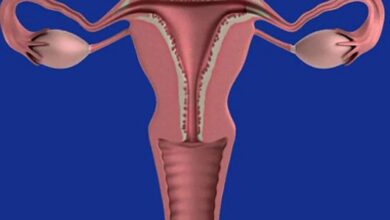Difference between chickenpox and measles Similarities and FAQs
Chickenpox and measles
In this article we will provide you the difference between chickenpox and measles Similarities and FAQs.
what does chickenpox mean
Chickenpox is a highly contagious infectious disease caused by the varicella-zoster virus. It is mainly characterized by very itchy skin eruptions that usually appear first on the face, then spread to the rest of the body. This condition is usually not serious and symptoms usually clear up within two weeks, but it can cause serious complications in adults or people with weakened immune systems. Chickenpox vaccine is usually given between 12 and 15 months to prevent chickenpox.
what does measles mean
Measles is a highly contagious infectious disease, caused by the measles virus. It is widespread among children and is spread through coughing, sneezing, or contact with the nasal secretions of an infected person. The most common symptoms are fever, eye irritation, sore throat, and white patches in the mouth that may be followed by widespread red skin rashes. Most people who contract this virus recover without serious complications, but in some cases pneumonia or other respiratory problems can develop and can even be fatal for babies under 6 months of age.
Similarities Between Chickenpox and Measles
The diseases chickenpox and measles are similar in that both are transmitted by direct contact with the virus. They are highly contagious, especially when an infected person coughs or sneezes. The characteristic symptoms of both are high fever, general malaise, and painful skin rashes. In severe cases, they can cause complications such as inflammation of the brain (encephalitis), breathing problems, or even death. The best way to prevent these diseases is to receive the corresponding vaccine to avoid being infected.
Differences between chickenpox and measles
chickenpox and measles _are two very common infectious diseases that mainly affect children. Chickenpox is characterized by a rash with fluid-filled blisters, headache, high fever, and malaise. It is transmitted by inhalation of varicella virus particles from infected people or direct contact with skin lesions. Measles is a highly contagious viral disease that causes cold-like symptoms such as coughing, nasal congestion, and sneezing; it also produces white patches in the mouth. This disease is spread by sharing closed spaces with infected people or by direct contact with contaminated respiratory droplets. Both can be prevented by proper vaccination to avoid serious complications.
Frequent questions about chickenpox and measles
How to know if it is chickenpox?
The best way to know if you have chickenpox is to see your doctor. The doctor will perform a physical examination to confirm the diagnosis, since the symptoms are similar to those of other common infectious diseases.
How many days does chickenpox last?
Chickenpox usually lasts between five and ten days. Symptoms may worsen for the first three to four days, before gradually beginning to improve.
When is chickenpox season?
Chickenpox usually occurs during the winter and spring months.
How does chickenpox go away?
Chickenpox goes away on its own in about 2 weeks. Symptoms usually get worse for the first 5 days, but then start to get better. Treatment can help relieve symptoms and prevent complications, but there is no cure for chickenpox.
What is measles symptoms?
Measles symptoms include high fever, cough, nasal congestion, conjunctivitis (pink eye), and a characteristic rash on the face that spreads to the trunk. Symptoms usually appear 10 to 12 days after exposure to the virus. Most people make a full recovery within 2 to 3 weeks without any significant complications. However, measles can have serious complications in some cases, such as pneumonia or inflammation of the brain (encephalitis).
What causes measles?
Measles is an acute infectious disease caused by the measles virus. Common symptoms include high fever, cough, watery eyes, and rash. The disease can be serious, especially for young children and people with weak immune systems.
How long does measles last in the body?
Measles lasts about two weeks in the body. After the first symptoms, most people with measles make a full recovery within one to two weeks.
What is the difference between measles and chickenpox?
The main difference between measles and chickenpox is that measles is a highly contagious disease caused by a virus while chickenpox is due to herpes virus infection. Measles can also be much more serious than chicken pox, with life-threatening complications if not treated properly. Most cases of chickenpox are usually mild and get better without treatment.




